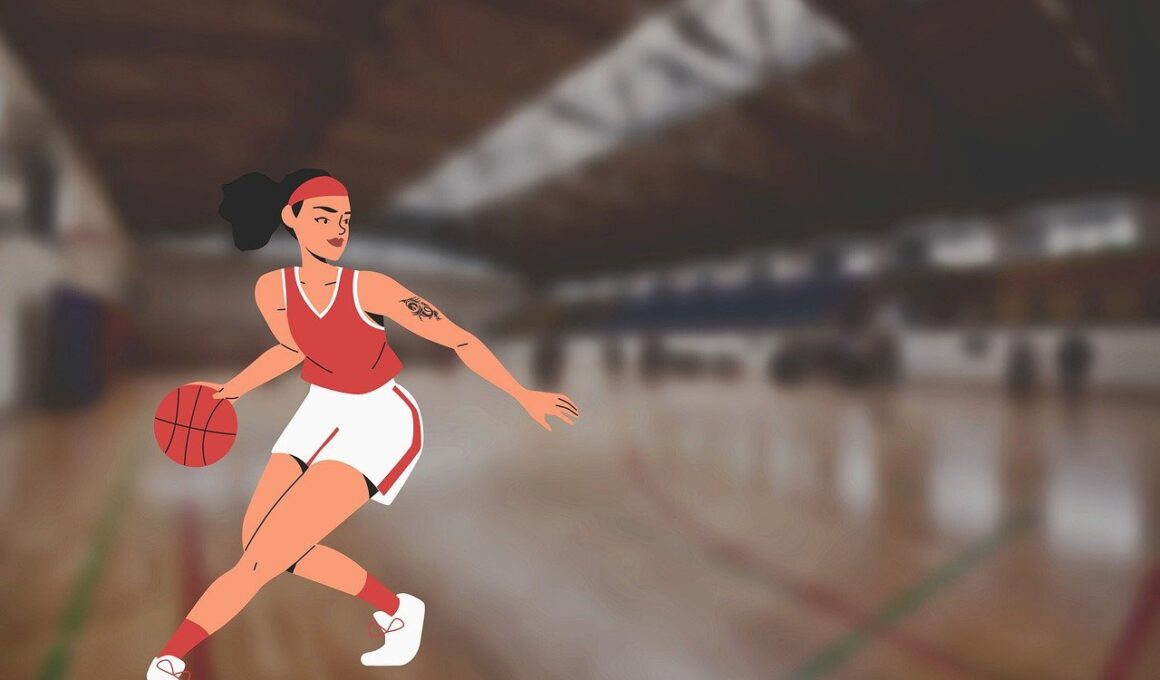Evaluating the Impact of Basketball Training Clinics on Player Progression
Basketball training clinics have increasingly become a focal point for player development in recent years. These programs offer structured workouts, individualized feedback, and exposure to skilled coaching techniques. Coaches, often with professional experience, help participants refine their techniques and understand the intricacies of the game. By immersing players in intensive training environments, these clinics aim to accelerate athletic growth and enhance skill levels. There are different types of clinics designed for various age groups and skill levels, from beginners to advanced players. This ensures that every participant receives tailored instruction and can focus on their specific needs and goals. Such clinics also promote teamwork and sportsmanship among players, which are critical aspects of basketball. Moreover, they often provide a platform for players to showcase their talents in front of scouts and college coaches. As players improve their capabilities through clinic participation, many find opportunities to play at higher levels, instantly increasing their chances of being noticed by professionals in the sport.
Key Benefits of Participating in Basketball Clinics
One primary benefit of attending basketball clinics is the development of fundamental skills, which include shooting, dribbling, and passing. Coaches emphasize these essentials during practice drills, allowing players to build a solid foundation. This hands-on approach is crucial, as mastering basics leads to greater overall performance on the court. Additionally, clinics often focus on strength and conditioning, giving players techniques to enhance physical fitness and agility. These attributes are vital for athletes who want to excel in a high-paced environment where speed and endurance matter. Another critical advantage is networking within the basketball community. Athletes can forge relationships with peers and experienced professionals who can offer direction and career insights. Exposure to complex strategies and advanced game plays also sets the stage for improved gameplay intelligence. Many training clinics incorporate video analysis, where players can review their performance and identify areas for improvement. This self-assessment framework helps them understand their strengths and weaknesses while adopting a learning mentality that benefits their long-term development.
Furthermore, basketball clinics often create competition-oriented environments where players can test their skills against others in structured scrimmage formats. Such competitive settings enhance their tactical understanding of the game. Participants often experience intense competition that pushes their limits and fosters resilience. Being placed in challenging scenarios allows players to develop strategic thinking and on-the-spot decision-making skills that are essential in real game situations. Most clinics emphasize not just technique but also the mental aspect of the game, helping players build confidence. This self-assuredness is crucial for any athlete as they navigate high-pressure situations during matches. Importantly, this growth isn’t constrained to physical skills; emotional and psychological resilience is nurtured as well. This holistic approach to training ensures that players emerge from clinics better equipped to face the ups and downs of competitive basketball. Coaches instill a long-term perspective in athletes, emphasizing continuous learning and improvement. Consequently, players leave clinics with not only refined abilities but also a growth-oriented mindset that can profoundly impact their future in basketball.
Customized Training Experiences
Basketball clinics are designed to cater to specific skill development goals, allowing for customizable training experiences that meet individual needs. Each player brings their strengths and areas for improvement, which clinics address through specialized drills and focused training sessions. For instance, younger players may benefit from fundamental skill reinforcement, while advanced athletes may delve into more complex strategies and tactics. This targeted approach ensures that participants receive instruction aligned with their current playing level, ensuring effective progress. Clinics also provide sufficient opportunities for one-on-one coaching, further personalizing the training experience. Players can seek additional guidance on particular aspects of their game and receive tailored feedback that encourages growth. Furthermore, many clinics integrate cross-training elements from other sports to develop well-rounded athletes, enhancing flexibility and coordination. This type of comprehensive training appeals to many basketball players looking to enhance their overall athleticism. By addressing various aspects of physical fitness alongside basketball-specific skills, clinics help players become more versatile athletes, capable of adapting their game to different playing styles and settings.
Moreover, nutrition and recovery strategies often form a significant part of the curriculum in basketball clinics. Educating players about proper nutrition helps them understand how what they eat influences performance on the court. Many clinics incorporate sessions focusing on meal planning, hydration strategies, and healthy recovery processes. By instilling these practices, athletes learn to make informed choices that contribute positively to their overall health and performance. This comprehensive approach proves beneficial, as players realize the crucial link between physical conditioning, nutrition, and athletic success. Additionally, the psychological aspects of sports are not overlooked in these clinics. Players receive tools and techniques to handle performance anxiety and develop mental toughness. Techniques such as visualization and goal setting are commonly taught to help players maintain focus and stay motivated, which are essential skills in competition. Clinics aim to foster a culture where systemic change occurs in how players train, eat, and recover. The knowledge and skills acquired can empower participants to take ownership of their development journey, fueling their ambition to reach higher levels of excellence in their basketball careers.
Long-Term Impact of Clinics on Player Development
The long-term impact of participating in basketball training clinics is profound. Many players experience significant advancements in their skill set over time due to consistent exposure to high-level coaching and peer competition. This continual development process ensures that players evolve alongside their peers, helping them to remain competitive. Many participants who commit to regular clinic attendance see improved performance during their school and local team games. As skills improve, they often find themselves receiving attention from scouts and recruiters, subsequently increasing their chances of advancing to collegiate sports. This progression fuels motivation among young athletes who aspire to play at higher levels. Furthermore, as individuals become more invested in their training, they develop a stronger work ethic, discipline, and resilience—qualities that extend beyond sports. This holistic development promotes well-rounded individuals prepared to face various life challenges. In closing, basketball clinics serve as powerful catalysts for growth, catalyzing improvement in technical skills and fostering personal development. Sustained engagement in these training environments can significantly shape a player’s emotional maturity and strategic understanding of basketball.
Lastly, basketball training clinics play an essential role in community building and fostering lasting relationships among players, coaches, and families. Participants, by engaging in shared experiences, often create connections that extend beyond the court. These relationships can offer players valuable support systems as they navigate their basketball journeys. Furthermore, clinics encourage a sense of belonging, community involvement, and camaraderie amongst participants. Parents also benefit from networking opportunities through interactions with coaches and fellow basketball parents, sharing resources and insights for youth development. Additionally, many clinics promote charitable initiatives, emphasizing sportsmanship and giving back to the community. This involvement enhances the overall impact of the basketball training experience by instilling values of teamwork, support, and collaboration. Overall, the combined effects of improved individual skills and strengthened community ties create a sustainable environment where players can thrive. As clinics continue to evolve, their influence in shaping the future of basketball remains pivotal, paving the way for the next generation of athletes who embody both skill and character in their pursuits.


